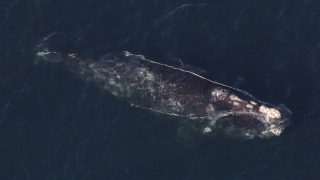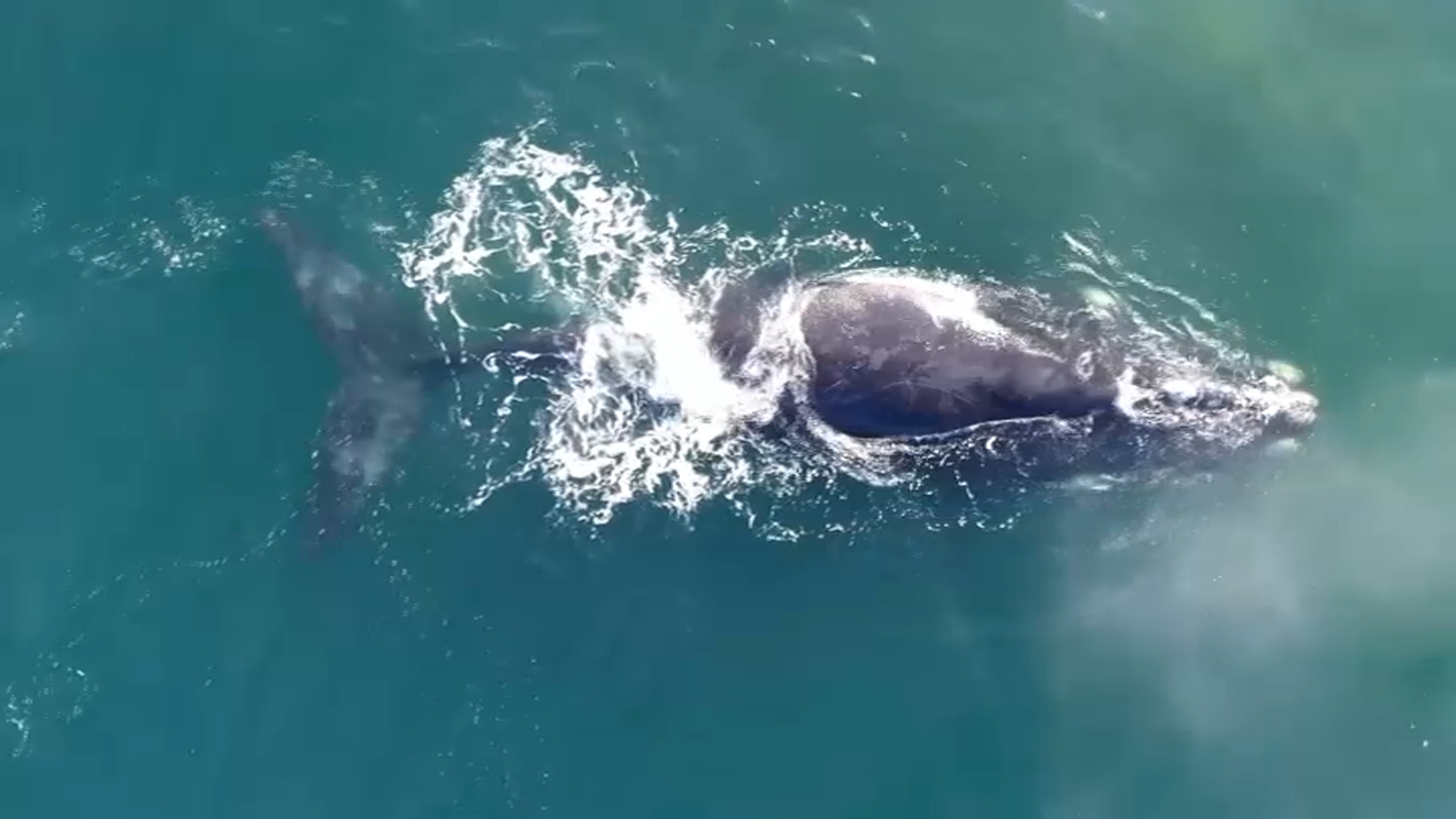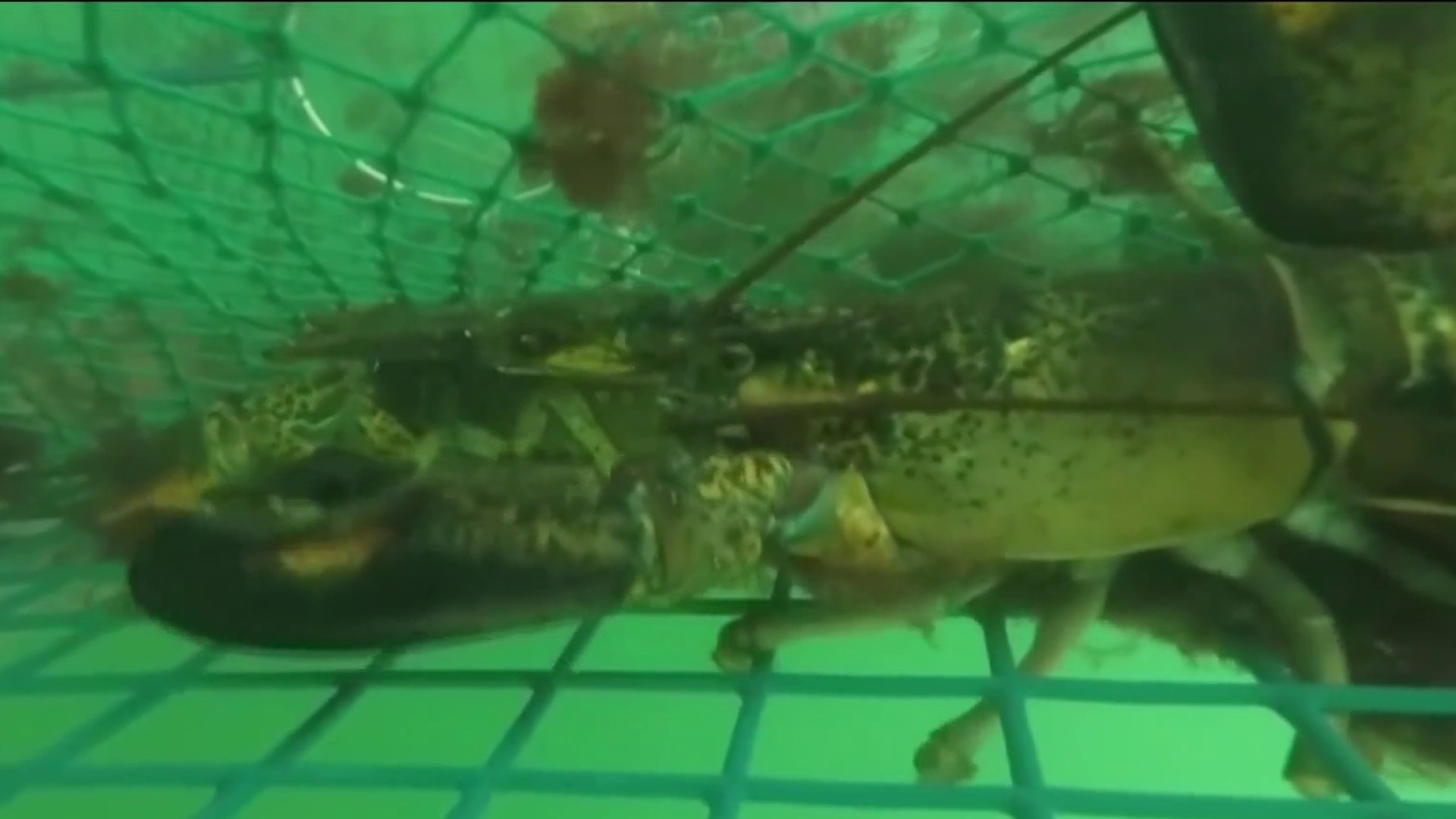
A right whale that researchers have been trying to free of a rope since last year has made it safely to Cape Cod, part of the species' regular migration route.
North Atlantic right whales are one of the most critically endangered animals on the planet. This particular whale, who researchers have named Snow Cone, is 17 years old and one of few remaining breeding females. Her first calf was killed in 2020 when it was struck by a ship, a common threat to these whales. Entanglement in ropes and nets is another danger, one Snow Cone is living through.
More on marine life and right whales
According to the Center For Coastal Studies, their Marine Entanglement Team tried to free Snow Cone in March 2021 when she was spotted in Plymouth, Massachusetts, but they didn't get it all. The Campobello Whale Rescue Team tried again in May when she was spotted off the coast of New Brunswick, Canada. Unfortunately, some of the rope remains embedded around her jaw.
Get New England news, weather forecasts and entertainment stories to your inbox. Sign up for NECN newsletters.
In spite of the situation, Snow Cone made the 1,300 migration to Georgia, where the whales give birth, and had her second calf in December. Rescuers have spotted her since, but decided it wouldn't be safe to try to further free her from the rope with her new calf at her side.
Research teams have been concerned that the remaining rope could cause or reopen wounds that could get infected.
There are only an estimated 336 North Atlantic right whales left in existence, so confirmation that Snow Cone and her calf, which appears healthy, are continuing the migration back north is good news. The Center For Coastal Studies said their team will continue to track Snow Cone and the calf.
Around 221 right whales have been spotted in Cape Cod Bay since December on their migration north. Local researchers are studying these migration patterns, which have been changing over time.
The whales are protected by state and federal law and these teams have special training and permits for the type of research and rescue work. If you see a right whale, you should move away and give the animals space - it is against the law to be within 500 yards of a right whale.
For more information on Snow Cone's journey, visit the National Oceanic and Atmospheric Administration (NOAA) website.
For more information on the Center for Coastal Studies, click here.



